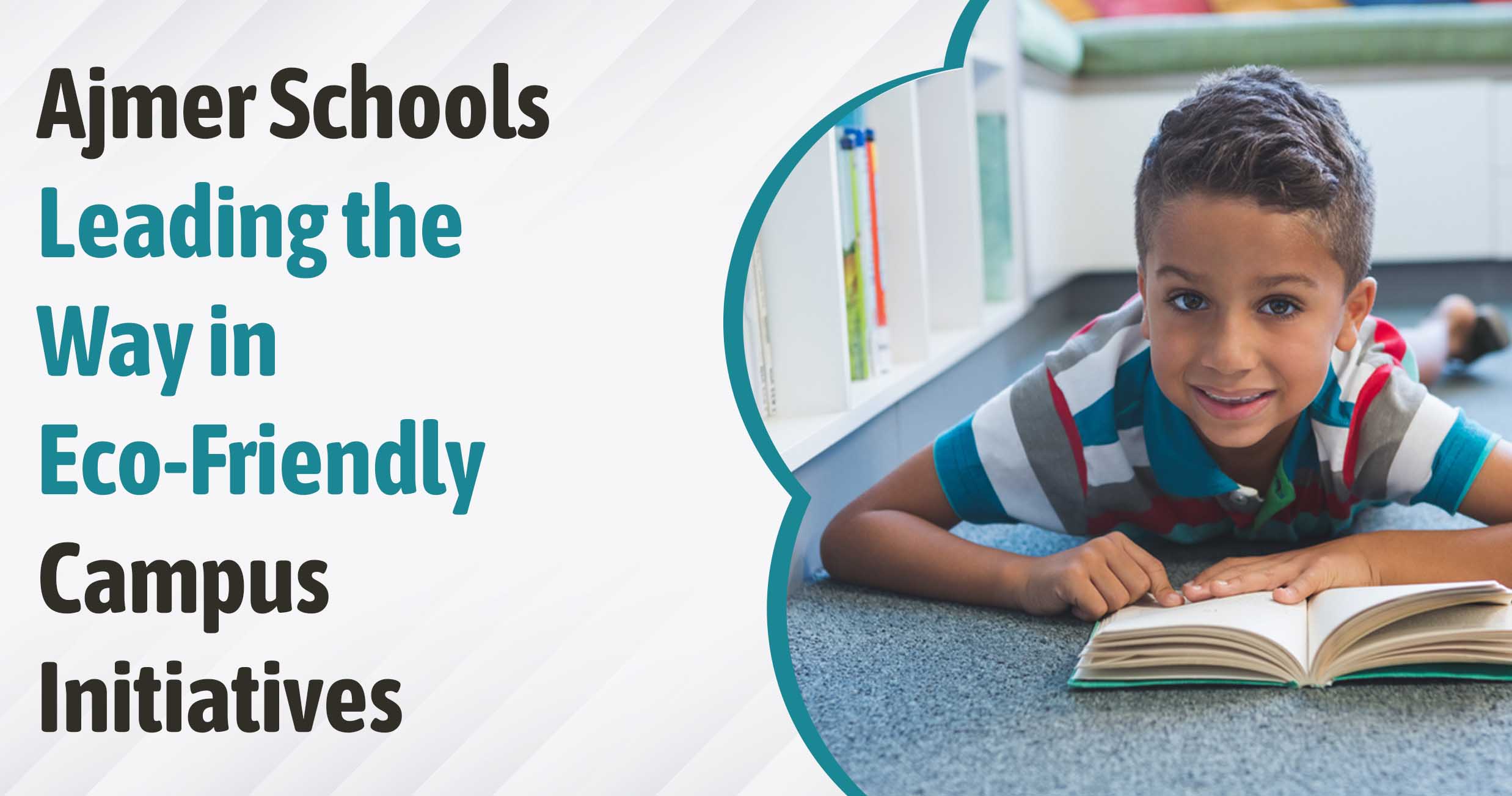
A sustainable future lies in the hands of future generations, and schools are reaching out to educate new-age children using innovative approaches. The eco-conscious schools in Ajmer teach and practice environmental responsibility to become eco-friendly, thus turning green and sustainable. These efforts reduce carbon footprints and inspire students to pursue lifelong habits that benefit Mother Earth. The education institutes in Ajmer are posing as the trendsetters, reflecting how green campus initiatives make a difference. Let us see how schools drive this change and what makes them different on their sustainability journey.
Schools that embrace sustainability start with little yet effective actions. Such as installing solar panels and saving energy. Most schools substitute the old lighting bulbs with LED bulbs, saving much electricity.
Eco-friendly schools emphasize waste management through recycling and composting. Students are encouraged to sort their waste into biodegradable and non-biodegradable bins. Most schools even recycle waste to make it worthwhile for art purposes.
Water conservation is another key focus area. Schools install rainwater harvesting systems and engage students to practice water-saving habits. Such measures establish a sense of responsibility within the learner while minimizing resource wastage.
Environmental education is more than a subject; it is a way of life in many modern schools. Teachers make topics such as conservation and biodiversity part of the routine lessons. This way, students become aware of the environmental challenges and their responsibility to solve them.
Workshops and awareness programs enhance this knowledge. Schools organize nature walks and tree-planting drives. These enable children to witness the beauty of nature themselves and realize its importance.
Environmental education is at the forefront in Ajmer schools. These schools encourage students to apply what they learn daily by focusing on practical learning. This hands-on approach helps build a generation that respects and values the environment.
A sustainable campus is more than just eco-friendly buildings. It encompasses every aspect of school life, from curriculum to community involvement.
Features of sustainable campuses include:
Schools in Ajmer have set a pace in this regard. As students are involved in the process, they use local energy sources to ensure sustainable usage. This involvement by students teaches them the essence of teamwork and responsibility towards something.
Students are the central core of any green campus initiative. They push the change by doing eco-friendly projects and spreading awareness among others.
Example:
By owning such activities, students learn leadership skills and environmental responsibility. This hands-on involvement ensures that the values of sustainability stay with them beyond their school years.
Eco-friendly schools in Ajmer have taken massive strides to create sustainable environments. These schools focus on integrating eco-friendly practices into their culture.
For instance, some Ajmer schools, like Satguru International School, have adopted the following:
Environmental education in Ajmer is unique as it combines traditional knowledge with modern techniques. Schools often join hands with local communities to promote eco-friendly practices. Such collaboration strengthens ties and makes the initiatives more impactful.
Eco-friendly schools have long-term benefits. They reduce pollution and conserve resources, thus making the environment healthier. The students get cleaner air, better surroundings, and awareness about sustainability.
These schools prepare students to face future challenges with practical knowledge and a responsible mindset.
Schools play an essential role in shaping the future to be sustainable. Adapting environmentally friendly practices, they train the students to be more responsible towards their environment. The institutions within Ajmer have been different and have set benchmarks by themselves. In such efforts, such as using renewable energy sources, saving water, and environmental education, these schools leave their mark on this Earth.
One such school is Satguru International School, which continues to inspire people with innovative green practices. The institution sets an example where education may lead one on the right path for a better tomorrow.